Britain’s Once-In-a-Lifetime Chance to Remake Society Isn’t Brexit
As Britons head toward a December snap election, they’d do well to recall the many issues plaguing them that have nothing to do with the EU.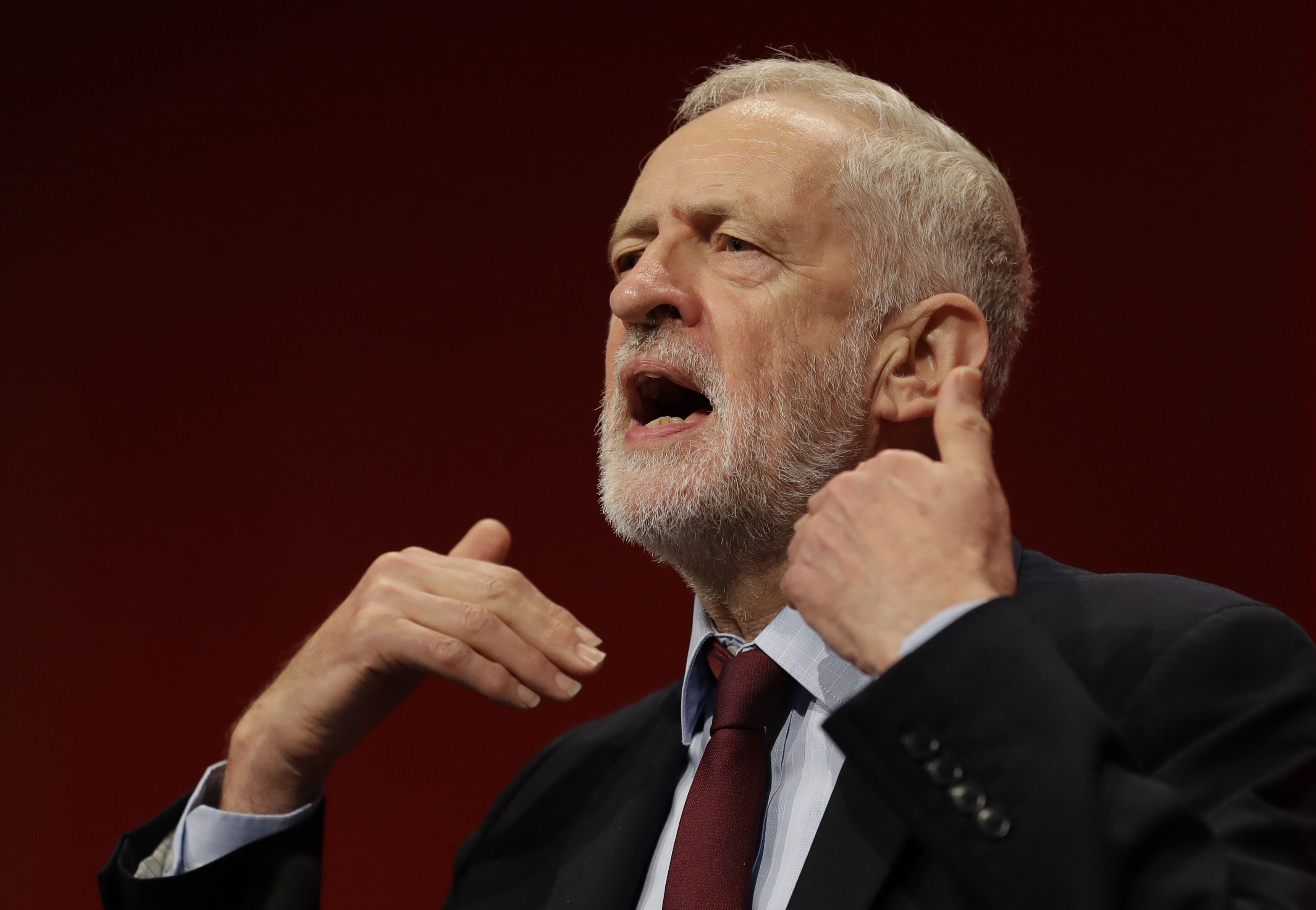 Jeremy Corbyn, leader of Britain's opposition Labour Party. (Kirsty Wigglesworth / AP)
Jeremy Corbyn, leader of Britain's opposition Labour Party. (Kirsty Wigglesworth / AP)
After failing three times to call an early election, Boris Johnson finally got his way on Tuesday as the United Kingdom’s parliamentarians voted in favor of a Dec. 12 snap election. Fourth time’s a charm, I guess? In some ways, the absurdity of a British prime minister in power having to beg the opposition for an election four times epitomizes the poisoned chalice Johnson has been handed. But before you go feeling even a modicum of pity for the essentially unelected leader, do remember that much of the poison in that chalice was poured in by Johnson himself while his predecessors David Cameron and Theresa May were in power.
Johnson, in a desperate attempt to reign as he no doubt believes he was born to, may soon boast the shortest premiership in U.K. history. The record he has to beat is that of George Canning, who in 1827 served as U.K. prime minister a total of 119 days before dying. And though Johnson did promise he’d be “dead in a ditch” rather than ask the European Union for an extension to the current Brexit negotiations, the extension has been requested by the reluctant prime minister with an unsigned letter and granted by the EU until Jan. 31, 2020. Alas, perhaps to his own chagrin, the newly minted British prime minister is alive and kicking still.
The Conservative leader now seems to believe a general election will solve all his woes. No doubt it’s been very frustrating to try to implement a hard-right program when you’ve smashed up your own feeble majority by kicking 21 of your own members of parliament out of your party for doing the exact thing you did to other leaders on multiple occasions. While 10 Tory MPs have had the whip restored—in other words, have been invited back into the Conservative Party—11 others remain in an independent limbo. Add to this that Johnson has lost the support of Northern Ireland’s Democratic Unionist Party, and that of his own brother, MP Jo Johnson, who has decided not to run again, citing a conflict between what he believes is best for the country and for his own family.
Many in his own party were surprised that after ramming the first part of his EU divorce deal down Parliament’s throat just a few days ago, Johnson decided to push for an election. Conservative skeptics wondered how he was going to continue to claim that Parliament was standing in the way of him delivering Brexit when he’d just won a key vote. Johnson being Johnson, however, insisted that the Labour Party would make his withdrawal agreement bill unrecognizable, hence he needed to go to the people to ask for a majority mandate in order to force his highly unpopular deal through—with the least scrutiny possible, that is.
It’s unclear, however, whether he’s done the math or is relying on his usual arrogance to get him through what he’s calling a “tough” election. While the upcoming election will be a notoriously difficult result to predict, a few things are already clear. The far-right Brexit Party, running on the promise of a “no deal Brexit,” will eat into the Tories’ “Leave” votes. The centrist Liberal Democrats, campaigning on canceling the EU-U.K. divorce altogether, will eat into its “Remain” votes. Without the popular Scottish Tory leader Ruth Davidson in the north, it seems unlikely the Tories will keep all, if any, of their 13 seats in the largely-“Remain” region. All of which begs the question: Where is Johnson hoping to conjure a majority of seats from?
And make no mistake, the Conservative leader will absolutely need to win an actual majority of seats in order to maintain power, something May was unable to do, and Cameron only once managed to scrape together. As many are already pointing out, this could be the first election in which neither of the two main parties—Conservatives and Labour—win even close to a majority as parties such as the Liberal Democrats, Scottish National Party and others, rise in popularity.
This, however, is not a problem to Labour or its left-leaning leader Jeremy Corbyn, who has likely realized that all his party needs in the coming election is for Tories to lose a majority. That’s because there’s not enough separation on many issues, not least of which is Brexit, between other opposition parties and Labour, to stand in the way of a loose coalition forming. On the other hand, “the Conservatives do not have any friends elsewhere,” as one political scientist put it.
Brexit and math aside, it seems to this American that Johnson has made another huge miscalculation: that the British public will be blinded by Brexit. Sure, he’ll be running on getting Brexit out of the way so that he can enact his supposedly anti-austerity plans. But how many Britons will believe the notoriously untrustworthy leader will actually move forward with an agenda that will benefit anyone but his elite buddies? Even his Brexit deal is expected to shrink the U.K. economy by $90 billion if it gets through Parliament.
Under three consecutive Tory leaders since 2010, much more than just Brexit has happened in the U.K. The 2017 fire at Grenfell Tower highlighted the Conservative Party’s disregard for the safety of its citizens. Last year, the British experienced the highest increase in poverty since Margaret Thatcher was in power. Homelessness has grown by more than 250% since Cameron took office, jumping from 1,768 in 2010 to 4,751 in 2017. Also since 2010, the U.K.’s beloved National Health Service (NHS) has been consistently underfunded by Tory governments, leading to the “longest period of austerity in its history.” To top it off, Conservatives have slashed welfare spending by billions, further exacerbating a growing inequality crisis largely of their own making.
Then there’s the climate crisis, which is spiraling out of control before our eyes. A recent survey already shows that the majority of U.K. voters see climate change as the most pressing issue impacting their vote in the upcoming election. Tories have, of course, presided over a near decade of decisions that have done little to mitigate climate change’s potential life-threatening catastrophe. In many ways, the 2016 EU Referendum results were more about all of the issues listed above than the EU itself, given that it was the tool the British public were afforded to express their growing discontent.
While Johnson has too short a track record as prime minister to indicate what direction he’ll take the nation in, his Brexit deal already provides hints. Most revealingly, he eliminated language in May’s negotiated deal that would require the U.K. to keep up with the EU’s environmental and labor standards in a post-Brexit future.
Johnson has also shown an extreme willingness to bend to the will of President Donald Trump in his coveted trade negotiations with the U.S., with Trump already indicating that he has his sights set on the NHS. Trump is likely interested in gaining more access to parts of the tax-funded health service for private U.S. companies, including drug companies. Not to mention that the Tory leader’s own sister, Rachel Johnson, has pointed out that many of her brother’s backers are uber-rich investors that would benefit from the kind of “hard Brexit” the Tory leader is working toward.
Corbyn, on the other hand, has proven throughout his long tenure in politics that as opposed to power, which seems to be his main opponent’s only goal, he’s concerned with the well-being of middle class and working class voters who are so often abandoned by politicians. Just one look at the Labour Party’s already popular 2017 manifesto will show any reader exactly how Corbyn plans to reshape the U.K. with radical plans for taxing the uber-rich, re-nationalizing privatized utilities and train services, as well as a Green New Deal. As for Brexit, the Labour leader has promised to put any deal to a second referendum to allow the public to have their say once the clear outcomes of leaving the EU have been outlined.
“This election is a once-in-a-generation chance to transform our country and take on the vested interests holding people back,” says the progressive politician. “The choice at this election could not be clearer.”
If Corbyn’s decision to take on Johnson’s challenge for an early election pays off, Christmas may come a dozen days early, not just for his party, but for the U.K.’s struggling classes who’ll have a true ally leading their nation at long last.
Your support matters…Independent journalism is under threat and overshadowed by heavily funded mainstream media.
You can help level the playing field. Become a member.
Your tax-deductible contribution keeps us digging beneath the headlines to give you thought-provoking, investigative reporting and analysis that unearths what's really happening- without compromise.
Give today to support our courageous, independent journalists.

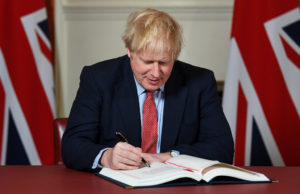
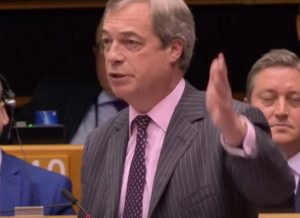
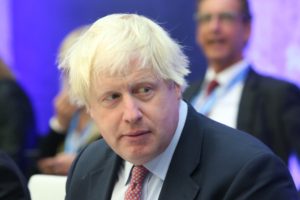
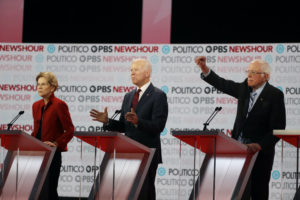
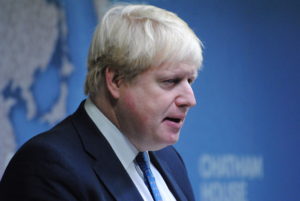


You need to be a supporter to comment.
There are currently no responses to this article.
Be the first to respond.